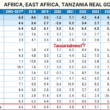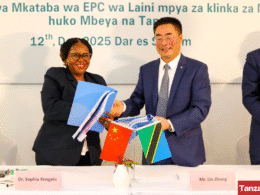Tanzania industry has recently shown support for the rural micro, small and medium enterprises through a six-region support program, known as the Small Industries Development Organization (SIDO).
The goal of this small enterprise support program is to be able to identify and add value to the products that are generated from these various enterprises.
At this time, contracts have begun to be signed between the implementing countries and SIDO.
The SIDO program is expected to be executed in six regions of the country, namely Tanga, Manyara, Iringa, Mwanza, Ruvuma and the Coast.
The SIDO project will include the use of consultants who will diagnose the individual region and select products for value addition in that region.
In an interview with the Guardian, the Director General of SIDO, Mike Laiser, said that each of the six regions had obtained a consultant who would be responsible for embarking on a value-chain process that would also entail choosing the appropriate products and properly training the entrepreneurs.
According to Mr. Laiser, one of the major impediments to the progress of the SMEs in the country has been a lack of information on marketing opportunities, however, the new support program has been designed to expose the upcoming entrepreneurs in the rural areas of the country to a form of value-chain management that give the necessary information on marketing opportunities.
Included in this program is some training on how to add value to products and how to improve them so that they reach the level of quality that is necessary in order for these rural products to compete in both the local and regional markets of the country.
“As the program now takes off,” said Mr. Laiser, “we expect it to inculcate in entrepreneurs skills necessary for value-chain management and thus help producers improve their incomes for poverty reduction in rural areas.”
Funding for the program is being generated by the International Fund for Agricultural Development (IFAD), which is the same organization that provided Tshs 30 billion to the country a year and a half ago for rural development.
Prior to the start of the project, a number of institutional strengthening measures were begun in order to ensure that the selected rural micro, small and medium enterprises in the regions would receive support that was both effective and efficient; some of these strengthening measures include training for both public and private sector stakeholders.
According to Mr. Laiser n his interview with the Guardian that, “the institutional strengthening training also tried to develop initiatives that are responsive to, and flexible in, changing circumstances and able to cope and respond to shocks appropriately.”
If the support program proves to be successful in these first six regions, plans would be made to extend it to the other regions in the country in order to begin fighting poverty through the use of value-adding techniques with rural products.










